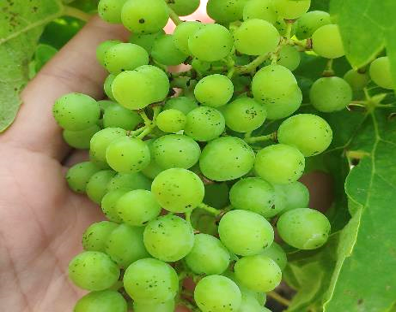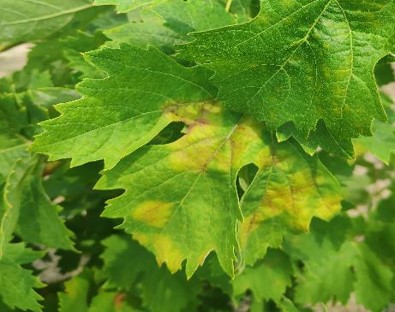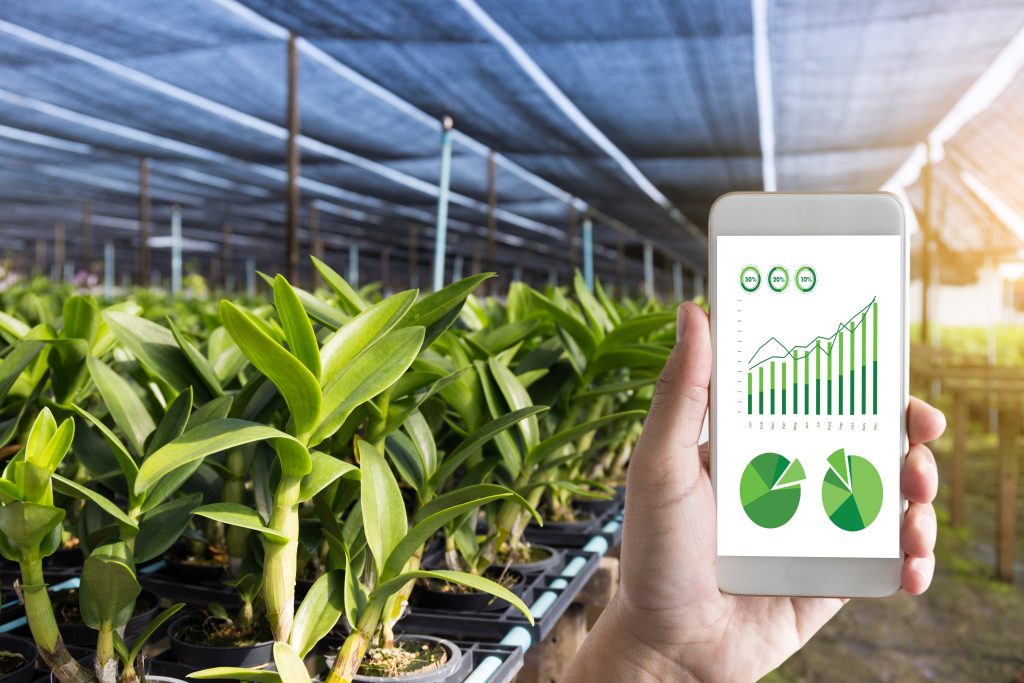Farmers in the 21st century continue to combat pests while also considering environmental and health factors. This prompts the question: What might the future of farming entail? Two Israeli startups are harnessing Artificial Intelligence, chemistry, biology, and engineering capabilities to reduce the quantity of chemicals on our plates.
In recent years, farmers face a pressing dilemma: increasing food production while minimizing environmental impact. With over 40% of global crops production being held back by weeds and destroyed by pests such as insects, disease, and fungi, projections suggest a potential food shortage for the world’s population within two decades. Addressing this challenge of pest control proves to be a complex endeavor and the answer to this question turns out to be quite complicated.
Currently, a plethora of solutions, mainly synthetic chemistries, are employed to combat pests that threaten crops throughout various stages of growth. However, many of these solutions have been developing resistance and are considered significant contributors to the environmental degradation associated with agriculture.
While some of the solutions are phased out either for safety reasons or because they are less effective due to resistance of the pests, many of these prevalent synthetic solutions still utilized today are the most effective, despite the fact they have been found to present risks to both the environment and human health, with some being even toxic. For all these reasons, safe alternatives are urgently needed such that maintaining the current scale and volume of synthetic chemical solutions is untenable. As a result, there is a prevailing inclination towards the development of new, safer alternatives, particularly those derived from biological sources or natural materials.
Biological solutions, although more natural, sustainable, and considered healthier, do not offer the sought-after solution that farmers desperately need. Hence, only around 5% of the agricultural resources market, valued at roughly $200 billion, consists of biological or natural products. The bottom line is that, as of 2023, biological solutions alone cannot bridge the gap.
Does the revolution face inevitable failure? Two Israeli companies are striving to demonstrate otherwise.
The Goal: To Move from Synthetic to Natural
One of these companies is Lavie Bio, which has set out to find farmers the Holy Grail: biological products that are comparable to chemicals, with the advantage of being environmentally sustainable.
“Our vision is to enable sustainable agriculture by progressing from the synthetic world to the natural biological world”, says Amit Noam, CEO of Lavie Bio. “We want to introduce biological products that can replace or supplement chemistry, thereby helping to develop the world of agriculture and food supply for many years”.
Although the market share of biological products is limited, Lavie Bio views it as having great potential for growth. The company expects that the biological market will grow from 5% to 25% of the agricultural resources market.
Lavie Bio is considered one of the world’s most advanced companies in the development of high-level innovative biological products. According to Noam, biological solutions have an advantage over chemical solutions because, unlike chemistry, biology offers natural, non-synthetic and non-toxic solutions. For example, their method for contending with fungi is to use a kind of “natural enemy” applied to the plant or ground, that competes with the fungal disease for food and water nutrients, thereby preventing it from surviving in a natural form, and without creating residues that pose a hazard for crops.
Lavie Bio develops biological solutions for agriculture that are based entirely on microbes – from the stage of identifying the microbes that can be turned into products via their optimization and transformation into a product that can be sold, to commercialization. “What makes us unique is that our entire development process is undertaken using very advanced AI and machine learning technology”, Noam points out.
The company was founded as a kind of spin-off of a company called Evogene, maintaining long-term exclusivity to use the technology it developed. “This allows us to identify the microbes in a computerized form better than any other company in the world, increasing our probability of success. Furthermore, following the identification stage, this enables us to perform optimization of these microbes and to enhance the function of each of them by 20%”, Noam adds.
One of the company’s important assets is a bank of approximately 150,000 microbes, making it one of the world’s largest and most diverse microbial collections. Part of the bank was developed in the company and part was received as part of a large-scale collaboration agreement with Corteva Agriscience that transferred tens of thousands of genetically sequenced microbes to Lavie Bio. This unique genetic bank is constantly growing with new collections of microbes and serves as the basis for the company’s computational capabilities that enable it to analyze a huge quantity of data.
“In contrast to many companies that use genetics to try and understand which microbes could be efficient against all sorts of microbes, our method is different”, Noam says. “What we do can be likened to a translator who knows how to translate genes into functions or microbe attributes. The technologies we use enable us to search for the microbes with the functions and attributes that can feasibly be turned into commercial products that constitute a good and green substitute for the existing chemical products.
“As of today, our rate of success in identifying microbes that can ultimately become products is about ten times higher than that of all our global competitors. In other words, while we need to scan 100 microbes to identify 10 with high potential, our competitors need to scan between 1,000-2,000 microbes to achieve the same result. The technology enables us to create a product 2-3 years faster than anyone else – and at significantly lower cost”.


The Journey from Microbe to Product
The process has three main stages, in all of which the company employs scientists and agronomists: the research stage which is responsible for discovering the microbe that can be turned into a product; the development stage which includes growing the microbes, adapting the growing and formulation processes for each product candidate, and creation of a dry or liquid product which is, in practice, the preliminary version of the product that will be tested in field trials; and the commercialization stage. “We currently have eight products in development and a lot of work is invested in each one of them throughout the different stages”, says Noam.
“This is the fifth consecutive year we have worked with the Innovation Authority,” says Noam. “The Authority has been extremely significant in achieving the resources required to develop our products. We began the initial stage with a concept of what we want to achieve, and they have accompanied us the whole way.
“One product is now ready for commercialization and we are undertaking a further collaboration with the Innovation Authority for the second product to advance it to the same stage. The collaboration has been very productive, and they have been there throughout, from their initial support to commercialization.
“The Innovation Authority is a power multiplier in our ability to both accelerate activity and provide investors and people in the market with validation that this is a technological development which has passed professional evaluation and that the Innovation Authority is prepared to cooperate in its financing”.
Lavie Bio presently has two categories of products, each of which is intended to tackle a different kind of crop and disease. The first of these is called “Bio-stimulants”, the objective of which is to enhance the crop and the utilization of nutrients in the ground. Their first commercial product in this category, added as a seed coating when planting crops, improves wheat yields by 6%. The product is intended for growers of wheat, durum, barley, soy, oats, and other grains. It is currently being distributed in the US and Canada and will soon expand to Europe and Brazil. Lavie Bio is developing three more products in this category, for different crops and regions.
The second category is called “Bio-pesticides” and is intended to replace sprayed substances used to combat diseases, fungi, and harmful pests. The first product commercialized is intended for more high-value crops like fruit and vegetables, combating fungal diseases causing fruit decomposition, such as with grape vines. Corteva received the license to sell this product. In addition, Lavie Bio is currently developing three more Bio-Pesticides, targeting other diseases and pests, on plant and in the ground.
A third product at an advanced development stage is being tested in the fields of several mega companies (at their request), while also being tested internally at Lavie Bio. Noam says proudly “One of the companies told us that they checked 20 products aimed at combatting the disease. They disposed of 19 and stuck with ours because it was the only one to achieve the desired outcome. We view this as further proof that we have succeeded in building a machine that can systematically bring increasing numbers of products to market. The fact that all our new products work in the field proves their precision.
“The Innovation Authority supports companies that develop technologies which improve food and environmental security – a central component in promoting solutions in the fields of climate and health. These technologies utilize biological & genetic knowledge that is based on computational predictions and AI to develop biological and natural products or safe synthetic compounds. In doing so, they create a new horizon in the field of agriculture, in eradicating pests in the ground, enhancing crops and improving consumer health”.
Dr. Noa Matarasso – Senior Director, Research in Academia Division
Artificial Intelligence Protecting Plants
What is the result of fusing biology, chemistry, computer science, and business acumen? The response lies within the laboratories and fields of the startup Agrematch.
Alarming statistics regarding the challenges of contemporary agriculture prompted Dr. Eitan Glick, Ifat Shub, and Dr. Yael Phillip to establish the company in 2017, driven by the aim to address a pivotal issue for farmers: the scarcity of novel products for pest control and crop protection.
Eyal Ben-Chanoch, the CEO of Agrematch, initially connected with the company’s founders as an investor before assuming the role of CEO as he grew more familiar with the team. “The team here is exceptional,” he remarks. “The company set itself an audacious goal with numerous nontrivial hurdles to overcome, but they have what it takes and are definitely capable of achieving it”.
Ben-Chanoch highlights two primary reasons necessitating the development of new compounds in agriculture. First, existing compounds become obsolete as pests, including weeds, diseases, and insects, evolve resistance to control agents – pesticides. Second, regulatory shifts restrict the use of many current compounds, mainly due to toxicity and soil residue concerns.
The diminishing array of tools available to farmers poses a real challenge because traditional trial-and-error methods for developing new products are costly and take many years.
“This is where Agrematch enters the arena”, Ben-Chanoch elaborates. “We recognized that the only viable path forward required a revolution, leveraging advanced technologies like Artificial Intelligence and Machine Learning to discover new compounds. Hence, the team devised ‘AI4AI’ – an intelligent, data-centric scientific system proficient in characterizing and identifying various molecular attributes within the extensive realm of materials.” Indeed, the system has already scanned billions of molecules.
‘AI4AI’ – Artificial Intelligence for Active Ingredients – is a system designed to explore the chemical space and identify compounds likely to exhibit desired and predefined actions. Leveraging this system, Agrematch has developed three product platforms: one comprising herbicide products derived from natural compounds, another featuring herbicide products utilizing safe synthetic compounds, and the newest collaboration with ICL Group focuses on smart plant nutrition solutions. The company has already developed compounds ready to become products and is presently engaged in negotiations with major corporations to bring some of the weed control compounds to market.

A few months back, the company secured an investment facilitating the expansion of product development and subsequent registration in various markets. Simultaneously, Agrematch initiated a collaborative project with ICL Group, focusing on leveraging the company’s innovative technology to develop more sophisticated fertilizers than those existing on the market today. Given that the developed technology extends beyond agriculture, Agrematch also intends to engage with prominent food corporations. “Most of the projects I’ve been part of previously received support from the Israel Innovation Authority – and the same goes for Agrematch,” Ben-Chanoch explains. “In my view, the Authority plays a crucial role in maintaining Israel’s reputation as the startup nation. Its support empowers entrepreneurs to take bold initial steps and pioneer new initiatives.”
The Shortlist of Compounds
From a technological standpoint, Agrematch’s process integrates machine and deep learning with biological validation: the computational system generates libraries of compounds exhibiting the desired bioactivity, which are subsequently tested by scientists on plants in laboratory settings, fields, and greenhouses to assess their effectiveness in combating pests while preserving crop health.
“The various tests also yield additional data, which is incorporated to enhance the system’s accuracy and performance,” Ben-Chanoch elucidates. “It learns and refines its libraries iteratively until converging on a select group of compounds, forming the foundation for a commercial product that prioritizes safety for humans and the environment. While functionality is crucial, it’s not the sole consideration. Bringing a product to farmers requires efficient production and compliance with regulatory processes to name a few examples.”
One of the distinctive benefits offered by Agrematch’s technology is its capacity to save time and resources throughout the entire R&D process while reducing the inherent risks associated with such endeavors. The company projects that AI4AI could potentially save agricultural product developers tens of millions of dollars and several years in time to market.
“Our significant advantage lies in the fusion of various disciplines – mathematics, biology, chemistry, and computer science,” Ben-Chanoch outlines. “Our vision is to become the premier discovery company in the realm of agriculture and beyond. We aim to develop a platform for a machine capable of fulfilling the requirements of functional chemistry and introducing to the market products derived from compounds discovered by our system.”
